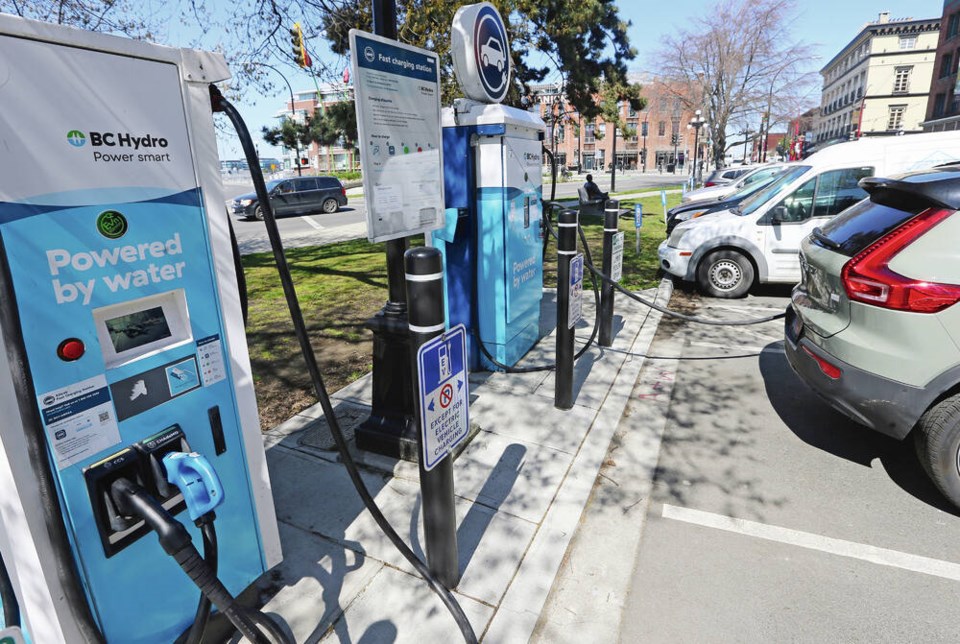Fast-charging fees will be levied based on power delivered, and EV owners will be allowed to charge their vehicles on the street near their home, in an effort to expand the use of electric vehicles in Victoria.
The changes to the electric vehicle strategy bylaw approved by council Thursday are expected to come back for adoption later this spring.
The measures include updating the fees for DC fast chargers to be based on the amount of power delivered rather than time they are in use.
According to a city staff report, not all electric vehicles charge at the same rate. Older, more inexpensive models tend to charge more slowly than newer vehicles, and temperature can have an impact on the charge rate.
A fee structure based on the amount of power actually provided will better meet the needs of users, expand access and not discriminate based on the cost of the vehicle, the city said.
The changes will also allow residents to run charging cords across a sidewalk from a residence to a vehicle.
The city would require residents to apply for a cord-cover permit that would allow them to charge vehicles curbside using household electrical power. The move would benefit EV owners living in townhouses or suite in a home that may not have off-street parking, the city said.
The city noted that Seattle and Vancouver both allow that kind of charging, requiring residents to use approved cord covers.
Council amended the bylaw Thursday to ensure accessibility concerns for those using the sidewalks would be taken into account when the changes are implemented.
The staff report noted Victoria is one of the country’s leading adopters of electric vehicles and that 21 per cent of all new cars purchased in the region are electric.
By 2035, all new light-duty vehicles sold in Canada are to be zero-emission vehicles.
Victoria’s target is to have renewable energy power 30 per cent of passenger vehicles registered in Victoria by 2030.



